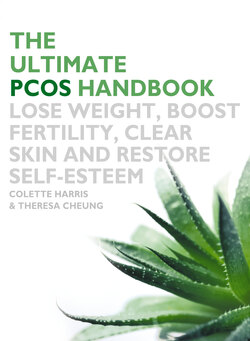Читать книгу The Ultimate PCOS Handbook - Theresa Cheung - Страница 42
WHICH PILL IS BEST FOR PCOS?
ОглавлениеOral contraceptives come in two types – ones containing both oestrogen and progesterone, and ones that contain only progesterone. The combined (oestrogen and progesterone) contraceptive is the most widely prescribed because it’s the most reliable. There are many different products available and they are divided into three groups depending on their oestrogen content:
1 Low-dose brands such as Minulet, Ovran, Femodene, Loestrin and Ovranette
2 Medium-dose brands such as Brevinor, Cilest, Norimin and Ovysmen
3 High-dose brands such as Norinly-l, Ortho Novin 1/50 and Ovran.
There are also pills that come in two or three groups, or phases, each phase containing a different proportion of oestrogen and progesterone, such as Triadene, TriMinulet, TriNordial and Tri Novum. (Please note brand names may differ outside the UK.)
Progesterone-only pills are slightly less reliable and must be taken at exactly the same time each day. UK brand names include Femulen, Micoval, Norgeston and Noriday.
You might think that progesterone-only pills are the best choice if you’ve got PCOS, but some women have found that progesterone-only pills or pills with low doses of oestrogen don’t properly suppress their PCOS symptoms, or even make them worse. One study5 found that the contraceptives with the greatest risk of triggering diabetes were progestin-only pills (progestin is a synthetic form of progesterone). However, a study from Harvard Medical School placed the blame for this increased risk not on the Pill but on excess weight. Of all the contraceptives studied, the combination pill containing norethindrome appeared to be the safest and did not increase the risk of diabetes.
According to Dr Helen Mason, senior lecturer in Reproductive Endocrinology at St George’s Hospital Medical School, London, certain brands may make androgenic effects (hair growth or loss and other ‘masculinizing’ symptoms) worse:
‘Norethisterone found in Brevinor, Loestrin, Trinovum, is the most androgenic and should be avoided. The next most androgenic is levonorgestrel found in logynon, Microgynon, Ovran and then Desogestrel found in Marvelon. It seems that cyproterene acetate found in Dianette is the least androgenic and as a result is commonly prescribed for hirsutism, Dianette is probably your best choice.’
Cilest is another brand to choose if excess body hair is a problem. If you’re prone to acne you need to go for contraceptive pills with the new progesterones such as Minulet, Femodene, Ovysmen, Brevinor or Yasmin.
Weight gain tends to be more common with the higher-dose pills – which are now, thankfully, almost a thing of the past. Switching to lower-dose pills may help, but bear in mind that even lower-dose oestrogen pills can cause water retention, and that progesterone can still increase your appetite. If weight gain is a concern, go for the pills with the newest progesterones, such as Femodene, to reduce the risk, but always check with your doctor that it’s the right pill for you and your symptoms. If you’re on a low-dose pill there’s no reason why, with careful attention to your diet and regular exercise, you shouldn’t be able to manage your weight.
It’s hard to say how long you should stay on the Pill, as every woman is different. You need to discuss this carefully with your doctor. The best advice is to monitor your health and your symptoms carefully. If you think the Pill is making things worse, tell your doctor. You may also find that after taking one brand of pill for several years your symptoms seem to be returning, perhaps as a result of increased insulin resistance. If you think your pill is triggering weight gain and your symptoms, ask your doctor for advice.
